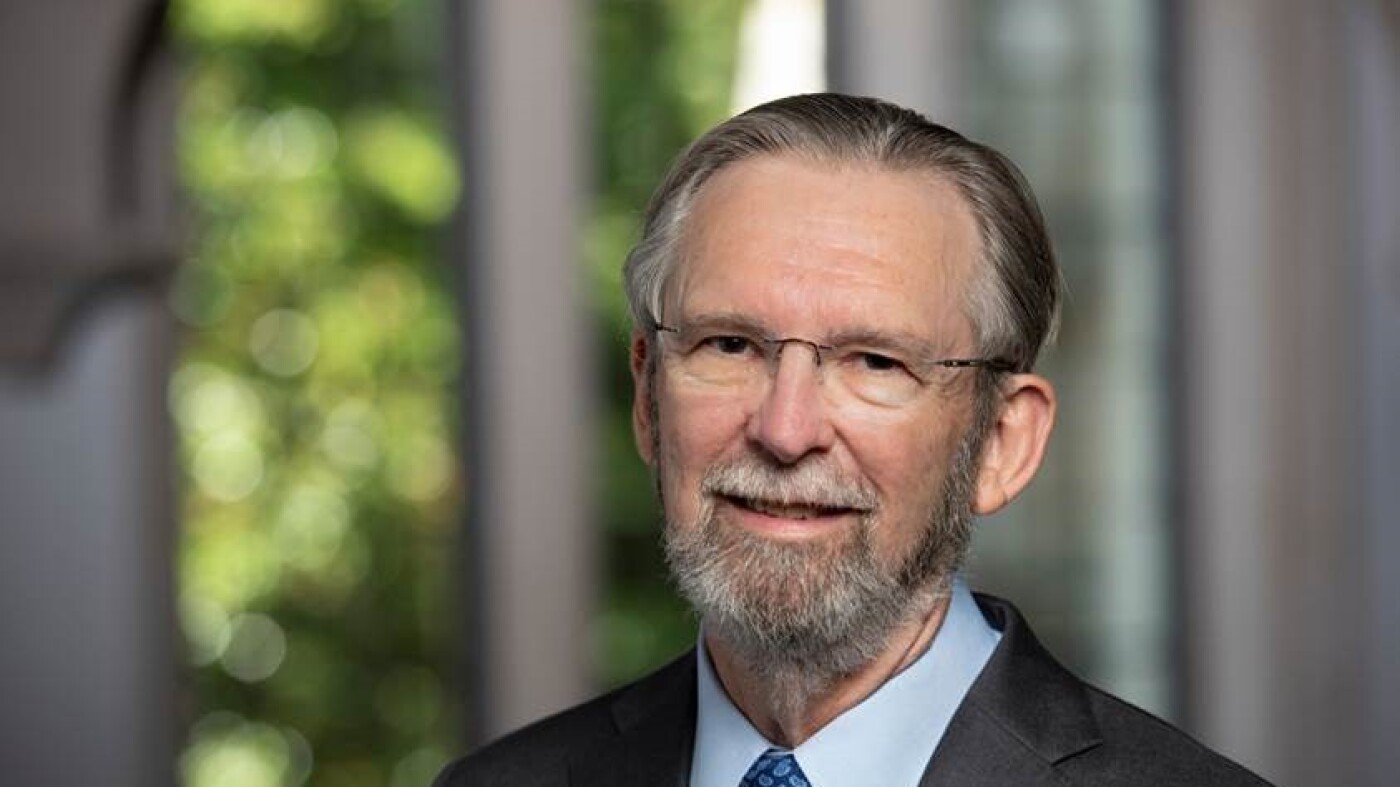
Richard B. Hays is the co-author of The Widening of God’s Mercy.
Fuller Seminary
hide caption
toggle caption
Fuller Seminary
Changing your mind can be uncomfortable, especially when you’ve made your thoughts known publicly. It can invite ridicule, backlash and accusations of flip-flopping, and it’s exactly the position theologian Richard B. Hays finds himself in.
Nearly 30 years ago, Hays published The Moral Vision of the New Testament, a book that laid out biblical ethics for modern issues. One of those issues was homosexuality. At the time, Hays wanted Protestant churches to accept gay and lesbian Christians, but acknowledged that they would need to remain celibate in order to comply with God’s word.
But over the years, Hays had more interactions with gay and lesbian Christians and saw the vitality they brought to the church. He also saw how his original writing was cited to exclude them from fellowship.
In a new book, The Widening of God’s Mercy, co-written with his son Chris Hays, a professor at Fuller Theological Seminary, the two lay out a radical new vision for LGBTQ acceptance in Christianity, and make the argument that God’s plan was always to include more and more people. In their view, it’s time for Christians to welcome gay and lesbian people into the church, full stop.
Theologians Richard B. Hays and Chris Hays spoke to All Things Considered host Scott Detrow about the arguments, Biblical evidence and beliefs that shaped their new book.
This interview has been edited for length and clarity.
Interview highlights
Scott Detrow: Before we get into really the meat of the book and the arguments you’re making, Richard, why do you think [the issue of homosexuality] has taken up so much mental space for so many Christians over the last couple of decades?
Richard Hays: There are many people, and especially in the more conservative evangelical churches, who have a view that every word of the Bible is divinely inspired, and it can never change. And so if there’s half a dozen verses in the Bible that pass negative judgment on same-sex relationships that’s the end of the discussion, period.
I think that that is a naive and actually inappropriate way of reading the Bible. So our new book is partly trying to reframe how the Bible is authoritative. It’s not rejecting biblical authority, but it’s trying to have a more nuanced view of how the Bible works as a narrative to shape Christian communities.
Detrow: Chris, to that end, a key argument in this book hinges on the Hebrew word nacham. Can you tell us what that means and why it’s so important?

Co-author Chris Hays is a professor at Fuller Theological Seminary.
Fuller Seminary
hide caption
toggle caption
Fuller Seminary
Chris Hays: It’s a term that has a range of different possible translations, everything from changing one’s mind to feeling sorry for something that one has done. And it’s one that is, perhaps surprisingly, used of God quite a bit throughout the Bible. God does have repeated changes of heart and mind.
Humans often don’t react well to God’s changes of mind and God’s new plan. [In] Isaiah 43, God says, “I am doing a new thing … do you not perceive it?” And so I think that what that calls for from us as people who read the Bible and take it seriously, is to continue to be attentive to the new things that God is doing.
Detrow: Throughout the book, you’re pointing out places where people are kind of mischaracterizing God’s message. What do you see as some of the most basic mischaracterizations of God as it applies to the focus of the book, how Christians treat LGBTQ people?
Richard Hays: People who are conscientiously attempting to uphold what they believe to be something that’s a changeless command of God, actually, with all good intention, end up acting in ways that are contrary to the Spirit and intent of God’s commandments.
A parade example for me is the story where there are some Pharisees confronting Jesus in the synagogue. There’s a man who had a withered hand, and the Pharisees are watching to see whether Jesus will do something to heal him, which they believe is breaking the law of Moses, because healing would be doing work on the Sabbath. Jesus looks at these guys and says, “Is it lawful to do good or to do harm on the Sabbath, to save life or to kill?”
Mark, the gospel writer says, “Jesus looked around at them with anger. He was grieved at their hardness of heart and said to the man, ‘Stretch out your hand,’ ” and the hand was restored.
The interesting thing about it is that [The Pharisees are] operating with a deep intention to be obedient to God’s law. But Jesus is grieved at their hardness of heart. I think we see things like that happening over and over in the stories of the Bible, and that the desire of God is for healing and inclusion of more and more people, and that the rigid attempt at obedience actually is operating contrary to God’s will.
Detrow: Richard, I want to ask you how you feel about this book being out in the world.
Richard Hays: Well, I’m feeling good about it. Change is sometimes hard, but it’s something that scripture itself calls us to all the time. Repentance, the Greek word for it is metanoia, which means a change of mind. So there’s a sense in which I’m eating some of my own words, and I’m concerned that it will perhaps burn some bridges and break some relationships that I’ve cherished.
But as I age, I wanted my final word on the subject to be out there. And so there it is.


